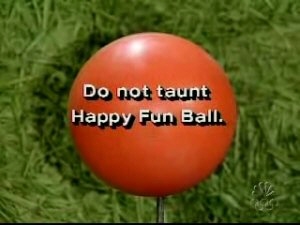Section 230 of the Communications Decency Act shields Amazon, Barnes & Noble and Books-A-Million from some, but not all claims brought over promotion and sale of scandalous book about presidential candidate.
Parisi v. Sinclair, — F.Supp.2d —, 2011 WL 1206193 (D.D.C. March 31, 2011)
In 2008, Larry Sinclair made the ultra-scandalous claim that he had done drugs and engaged in sexual activity with then-presidential candidate Barack Obama. Daniel Parisi, owner of the infamous Whitehouse.com website, challenged Sinclair to take a polygraph test.
Not satisfied with the attention his outlandish claims had garnered, Sinclair self-published a book detailing his alleged misadventures. The book was available through print-on-demand provider Lightening Source.
Amazon, Barnes & Noble, and Books-A-Million (“BAM”) each offered Sinclair’s book for sale through their respective websites. (Barnes & Noble and BAM did not sell the book at their brick and mortar stores.) Each company’s website promoted the book using the following sentence:
You’ll read how the Obama campaign used internet porn king Dan Parisi and Ph.D. fraud Edward I. Gelb to conduct a rigged polygraph exam in an attempt to make the Sinclair story go away.
Parisi and his Whitehouse Network sued for, among other things, defamation and false light invasion of privacy. BAM moved to dismiss pursuant to Rule 12(b)(6) while Amazon and Barnes & Noble moved for summary judgment. The court granted the booksellers’ motions.
Section 230 applied because booksellers were not information content providers
The booksellers’ primary argument was that Section 230 of the Communications Decency Act shielded them from liability for plaintiffs’ claims concerning the promotional sentence. The court found in defendants’ favor on this point.
Section 230 provides in relevant part that “[n]o provider or user of an interactive computer service shall be treated as the publisher or speaker of any information provided by another information content provider.” The major issue in this case was whether the online booksellers had provided the information comprising the promotional sentence. The court found that the pleadings (as to BAM) and the evidence (as to Amazon and Barnes & Noble) did not credibly dispute that the booksellers did not create and develop the promotional sentence.
But not so fast, Section 230, on some of those other claims!
The court’s treatment of Section 230 in relation to plaintiffs’ false light claim and the claims relating to the actual sale of the book were even more intriguing.
Plaintiffs argued that their false light claim was essentially a right of publicity claim. And Section 230(e)(2) says that immunity does not apply to claims pertaining to intellectual property. There is some confusion as to whether this exception to immunity applies only to federal intellectual property claims or to both federal and state IP claims. On one hand, Perfect 10, Inc. v. CCBill says that only federal intellectual property claims are excepted from immunity (which would mean that state law IP claims would be barred by Section 230). On the other hand, cases like Atlantic Recording Corp. v. Project Playlist, Doe v. Friendfinder Network and Universal Communication System v. Lycos suggest that both state and federal IP claims should withstand a Section 230 challenge.
In this case, the court indicated that it would have sided with the cases that provide for both federal and state claims making it past Section 230: “I am not inclined to extend the scope of the CDA immunity as far as the Ninth Circuit. . . . ”
But ultimately the court did not need to take sides as to the scope of Section 230(e)(2), as it found the use of plaintiff Parisi’s name fit into the newsworthiness privilege. One cannot successfully assert a misappropriation claim when his name or likeness is used in a newsworthy publication unless the use has “no real relationship” to the subject matter of the publication.
The court also seemed to constrain Section 230 immunity as it related to the online booksellers’ liability for selling the actual book. (Remember, the discussion above, in which the court found immunity to apply, dealt with the promotional sentence.) The court rejected defendants’ arguments that the reasoning of Gentry v. eBay should protect them. In Gentry, eBay was afforded immunity from violation of a warranty statute. But it merely provided the forum for the sale of goods, unlike the online booksellers in this case, which were the distributors of the actual allegedly defamatory book.
Even though Section 230 did not serve to protect BAM, Barnes & Noble and Amazon from liability for defamation arising from sales of the book, the court dismissed the defamation claim because of the lack of a showing that the booksellers acted with actual malice. It was undisputed that the plaintiffs were limited-purpose public figures. Persons with that status must show that the defendant acted with actual malice. That standard was not met here.





